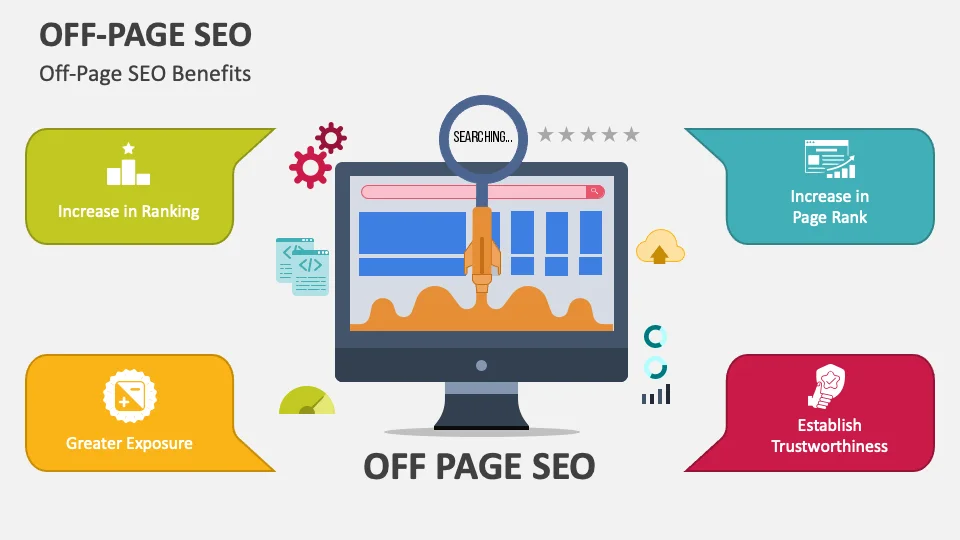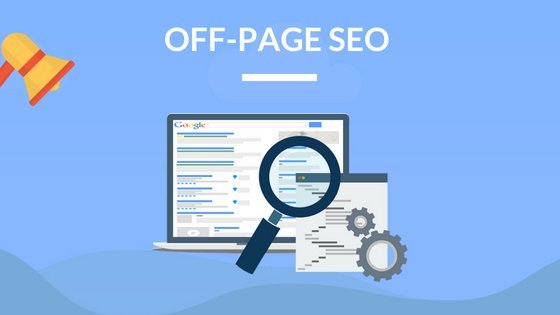If you are ready to get more involved and grow your off-page SEO strategy beyond basic link-building, then this blog is for you. In this blog, we will talk about some advanced off-page SEO strategies that can help you generate more traffic to your website through a relevant, high-quality user search. These tricks can help to rank your website higher in search engine results. Let’s begin our journey into the world of advanced off-page SEO.
Leveraging the Power of High-Quality Backlinks
Links coming into your site, or backlinks, are the basis for off-page SEO. Why are backlinks important? Because there are other sites vouching for your content. But all backlinks are not created equal. Having a solid backlink profile is better than having more backlinks with inferior qualities.
Strategies for Effective Guest Posting
Guest posting doesn’t just mean writing a blog for another site. It means finding blogs that have high authority within your niche and creating content that adds value. You can use Ahrefs and Moz (tools to measure domain authority) to identify relevant blogs, look at the domain authority, and see if it really is a good fit for your niche. Once you’ve done that, you can get a backlink to drive traffic back to your site.
Exploring Broken Link Building
You identify links on other sites that appear to be broken and suggest your content as a replacement to their webmaster. Using a tool such as Screaming Frog, you can identify all these around the web. You’re not just getting a backlink; rather, you’re helping the webmaster make sure that they aren’t damaging their site’s user experience.

Boosting Social Signals to Enhance SEO
Though social signals are unlikely to directly impact your SEO rankings, the indirect benefits, particularly in terms of visibility and user engagement, are very real indeed.
Creating Share-Worthy Content
Creating content that makes users want to share on social media can drastically increase your brand’s exposure. Having an original, helpful, or emotional piece of content generally performs really well. For example, tools such as BuzzSumo can tell you which content types and topics have performed best on social.
Building Relationships with Influencers
Partnering up with influencers will increase your reach significantly. Find influencers in your space using services such as BuzzSumo; make them familiar with your work by sharing the things they produce, giving feedback where possible, and offering to collaborate on something that would benefit their audience. They can send a ton of attention and traffic back to your site depending on their social shares, mentions, or backlinks.
Expanding Reach Through Content Syndication
One of these tactics involves copying your content onto third-party sites, a process known as content syndication. When done right, content syndication exposes your brand to audiences who would not have otherwise discovered you.
Selecting the Right Platforms
Pick syndication platforms wisely. Medium, LinkedIn, and other forums for dialogue headline broader audiences of engaged readers. Choose syndication partners (if you allow reposting) and channels wisely and in a manner aligned with your brand strategy and content strategy.
Implementing Best Practices
Syndicating content can lead to increases in engagement when the content is written for an audience on the platform and has canonical tags (i.e., an SEO tag that instructs search engines to refer to the original URL of the content on your site) to appreciate the original piece of text. SEO issues that syndicated content faces include duplicate content and the need to identify canonical versions.

Engaging in Forums and Community Boards for Brand Authority
Contributing to discussion boards and community sites will build your brand authority and direct traffic to your site.
Active Participation in Niche Forums
Answering questions on Stack Exchange or specialised community boards relevant to your industry is another good way to establish credibility. Write clear, helpful answers that solve problems, and link to your content where appropriate and not in violation of the forum’s rules.
Using Quora to Your Advantage
Better than that, it’s an awesome tool for off-page SEO. Answer questions in your niche (link to your stuff as a reference or for further reading), and high-quality traffic follows. But your answers need to be substantive and offer real value if you want clicks.
Utilizing Advanced Link Building Strategies
Effective link building remains one of the most powerful off-page SEO tactics.
Developing Comprehensive Resource Pages
Writing resource pages on—or about—something related to your niche can be a great way to attract links naturally. Teachers, industry specialists, and content creators tend to cite these pages when they’re writing pieces for students, tech magazines, websites, and blogs.
Organizing and Hosting Virtual Summits
By hosting virtual summits or webinars with influencers in your industry who are widely recognised for their knowledge, you can tap into their thought leadership while gaining great content for your audience that is likely to be shared, creating links back to your site.
Conclusion
There you have it—a look into advanced off-page SEO tactics that could help skyrocket your website’s traffic and organic rankings in the search engine result pages (SERPs). It’s not just about links when it comes to off-page SEO. It’s about relationships. Trust. Credibility. Visibility. Everywhere and anywhere.
Keen to continue learning? Head over to our guide to off-page SEO, or how to create content that converts. With the right tricks up your sleeve, you can make your site more popular—and attract traffic—than ever before. Good luck with your SEO!

